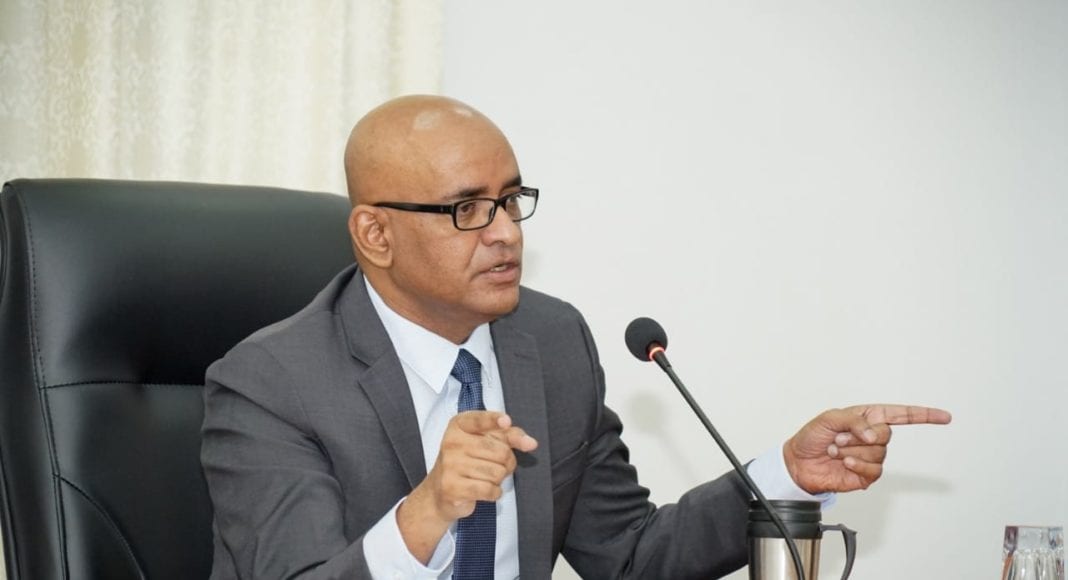Vice President Dr. Bharrat Jagdeo has given all assurances that the government intends to close loopholes being used to frustrate and circumvent the requirements of the Local Content legislation as well as address issues affecting local contractors such as extended waiting periods for payment from international companies operating in the oil and gas sector.
During a press conference on Friday, the former Head of State said the government will bring an end to the “rent-a-citizen” practice, otherwise known as fronting, as well as delayed payments to local companies.
With the legislation shifting the momentum in favour of locals, Dr. Jagdeo said government, and more specifically, the Local Content Secretariat has observed a number of ways in which some entities are trying to beat the system. In some cases, he said companies are pushing junior employees to managerial positions, while their compensation is not reflective of this promotion. The official said this is being done to fool regulators that they are meeting the managerial staff quota. In other instances, he said the Secretariat has observed that locals are being used to give the impression that they hold 51% of the shares when this is just superficial ownership.
“… So, there are several things we identified, and we will close those loopholes, the same way we will close the loophole on bundling of contracts and on long payments… They can’t pay local companies in 90 days. I don’t care who defends that, Exxon or not… we will close this. However, this is a work in progress as we try to improve on the legislation,” the Vice President stated.
The former Head of State was keen to remind that the legislation has paved the way for locals to be treated with the respect they deserve as oil companies and their contractors know now that there are penalties in place if they are not compliant with the law.
“We will perfect the law, build capacity and amend the targets accordingly as we go along,” the VP concluded.
The Government and the Private Sector Commission (PSC) recently announced that they will be working together to solve these matters, which have been put on public record since the Local Content Act was passed in December 2021.



